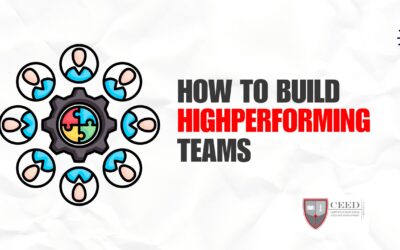Let’s be honest, staying productive as a manager can be a very big struggle sometimes.. One minute you’re cruising, and crushing your to-do list, the next minute you’re buried in emails, surprise meetings pop up, and your carefully crafted schedule goes flying out the window.
In this blog, we would be discussing top 7 tips to help you stay productive even on days when the unexpected happens.
Let’s dive into it!
What is Productivity, Anyway?
At its core, productivity is about efficiency. It’s the ability to consistently execute tasks effectively, maximizing the use of your resources to achieve a goal.
But it’s more than just checking things off a list. True productivity emphasizes quality over quantity. It’s about focusing on the most important tasks and completing them well.
The ideal outcome of productivity is a sense of accomplishment at the end of a day, knowing you’ve made significant progress without feeling utterly drained
So, as managers who are seeking to boost their productivity and become more effective, it is important to ensure that you are not just focused on the number of tasks completed but also ensure that an excellent work is done.
Factors That Negatively Affects The Productivity Of A Manager
Have you ever felt like you are taking a walk but not getting to your destination? As a manager, there are a bunch of roadblocks that can hold you back from being truly productive. Let’s take a closer look at some factors and how they can negatively impact your ability to get things done:
No Clear Goals and Objectives: Managing a team without clear goals is like navigating a maze without a map. Your team needs to know what “success” looks like, both for themselves and for the overall project. Without this direction, everyone would be working on different things, and progress will get slow and messy. This can affect your productivity as a manager because the more unproductive your team members are, the less productive you would become.
Lack of Adequate Resources: Just like a construction worker cannot build a house without any tools, you need the right resources to be productive. This could be anything from software and equipment to enough staff or budget to complete tasks. Feeling constantly held back by a lack of resources makes it tough to achieve anything.
Lack of Required Skills: Let’s face it, not every manager is a natural-born leader. If you find yourself struggling with core skills like delegation, communication, conflict management among team members, or decision making it can seriously impact your productivity. The more you invest in developing these skills, the smoother things will run. CEED ACADEMY offers you the opportunity to build key management skills through a monthly managers training. The quality of your management affects the quality of results your business produces. Get trained and become a manager that manages effortlessly and excellently.
Multitasking: Juggling multiple tasks at once might feel impressive, but it actually hurts your focus and slows you down. When you constantly switch gears, your brain has to keep restarting on each task, wasting valuable time.
Focus on tackling one thing at a time for better results and learn to delegate tasks to your team members. The reason most managers multitask most times is because they are trying to do all the work themselves. Learn to trust your teammates and commit responsibilities to them, that’s how they grow.
Focusing on the Wrong Things: Not all tasks are the same. Sometimes, managers get caught up in activities or tasks that don’t have a big impact on the overall goals. Learn to prioritize your workload and delegate effectively. Focus on the high-impact activities that truly move the needle forward.
Seeking Perfection: Striving for excellence is great, but aiming for absolute perfection can be a productivity killer. Getting stuck in endless revisions or over-analyzing every detail can delay progress and leave you feeling overwhelmed. Set realistic standards, aim for “good enough” sometimes, and keep things moving forward.
The best way to overcome these productivity roadblocks is by first identifying them. Afterwards, you can take steps to overcome them and become a super-efficient manager.
Top 7 Productivity Tips for Effective Successful Managers
Being a manager often means juggling multiple tasks, leading a team, and achieving ambitious goals. But with the right strategies, you can boost your productivity and become a more effective leader. Here are seven key tips to help you get the most out of your workday and become a successful manager.
Plan Your Day: Don’t just dive headfirst into your email. Start each day or the night before by creating a clear plan. This might involve using a to-do list app, scheduling specific tasks in your calendar, or simply blocking out time for focused work. Prioritize your tasks based on importance and urgency, ensuring the most critical ones get your full attention during your peak productivity hours.
Have a vision Goal: A clear vision acts as your roadmap. Where do you want your team to be? What goals are you all working towards? Having a well-defined vision provides direction and motivates both you and your team. It allows you to prioritize tasks and decisions that move you closer to achieving those goals.
Break Down Big Tasks into Bits: Large, looming projects can feel overwhelming and lead to procrastination. Instead, break them down into smaller, more manageable steps. This makes them feel less daunting and allows you to track progress along the way. Having a clear roadmap of smaller tasks also helps you delegate effectively (see point 4).
Delegate: You don’t have to do everything yourself! Empower your team by delegating tasks that align with their skills and strengths. This frees up your time to focus on strategic initiatives and leadership tasks. Provide clear instructions, set deadlines, and offer support, but trust your team to get the job done. Delegation is not just about efficiency, it’s also about fostering growth and development within your team.
Start With the Resources You Have: Don’t get bogged down waiting for perfect conditions or the latest tools. Be resourceful! Utilize the skills and knowledge of your team, explore free or low-cost solutions, and get started with what you have. Focus on achieving progress, not perfection.
Stop Procrastinating: We all procrastinate sometimes, but for managers, it can be a major productivity killer. Recognize your procrastination triggers and develop strategies to overcome them. This might involve setting time limits for specific tasks, rewarding yourself for completing tasks on time, or simply removing distractions from your workspace.
Upskill: The world of work is constantly evolving. Investing in your own development by learning new skills or deepening your knowledge in relevant areas will not only make you a more effective leader, but it will also inspire your team to do the same. There are many resources available online and through professional development courses to help you upskill.
Bonus Tips For You:
Have a “No Meetings” Day: Schedule a dedicated day (or even a half-day) with no meetings on your calendar. This allows you uninterrupted time to focus on deep work, strategize, or catch up on tasks that require sustained concentration.
Learn to take breaks:
There’s no one-size-fits-all approach to breaks. Experiment and find what works best for you. Here are some ideas:
- Take short breaks every 60-90 minutes to get up, move around, stretch, or grab a healthy snack.
- Spend a few minutes on deep breathing or meditation to de-stress and improve focus.
- Get some fresh air and sunlight to boost your mood and energy levels.
Becoming a productive manager is a journey, not a destination. There will be good days and bad days. But with these tips, you are well on your way to smashing your business goals and becoming a more effective manager even when the unexpected comes up.





